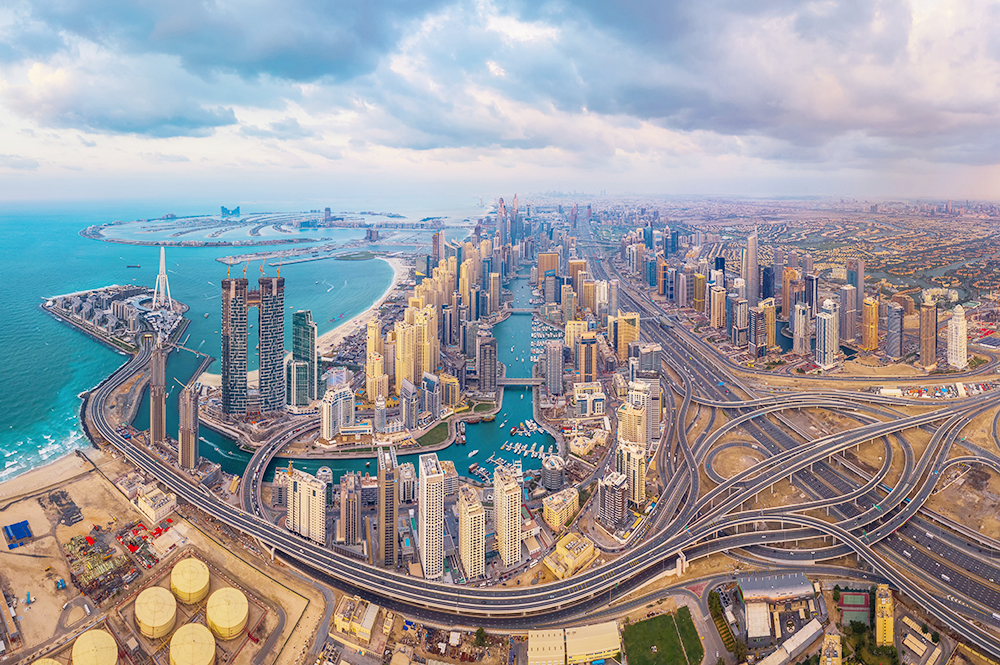The UAE Digital Government (DGov) has stated that citizens of more than 50 countries can get a 30-day visa on arrival in the UAE, which can be extended for up to 10 days, or a 90-day visa upon arrival. However, individuals from other countries must obtain an entry permit before arriving in the UAE and have a sponsor.
In addition, the UAE Digital Government (DGov) clarified that citizens of GCC (Gulf Cooperation Council) countries are not required to obtain a visa or permit, nor do they need a sponsor who is a UAE national or resident. These individuals can simply present their GCC country passport or national ID card upon entering the UAE.
Furthermore, the DGov noted that individuals from over 50 countries can visit Dubai for either 30 or 90 days with a visa on arrival by using the “Visit Dubai” website. This website also provides a convenient way for anyone to check their eligibility for a UAE visa on arrival at https://www.visitdubai.com.
UAE visa on arrival for Indians
It stated that Indian citizens with a regular passport who possess a visit visa issued by the USA, a green card issued by the USA, a residence visa issued by the UK, or a residence visa issued by the EU, can obtain a visa on arrival for up to 14 days, as long as their visas or green card are valid for at least six months from their arrival date in the UAE. This visa can be extended for another 14 days if needed, a report in Al Khaleej said.
According to the DGov, passports must typically be valid for a minimum of six months from the date of entry into the UAE.
The type of entry permit required depends on the purpose of the visit, which could include tourism, visiting friends or family, transit, or work. As stated by the DGov, the sponsor for the visa can be a UAE citizen, an expatriate resident with a valid residency permit in the UAE, a UAE-based airline, a UAE-based hotel or tour agent, a government entity, or companies in the private sector or free zones.
The list of countries eligible for a visa on arrival may change periodically, so it is recommended that applicants check with the UAE embassy in their country before travelling to the UAE.
According to data provided on UAE Embassy, Emirates and Etihad websites UAE’s visa on arrival is available for citizens of the following countries:
30-day visa on arrival
- Andorra
- Australia
- Brunei
- Canada
- China
- Hong Kong, China
- Japan
- Kazakhstan
- Macau, China
- Malaysia
- Mauritius
- Monaco
- New Zealand
- Republic of Ireland
- San Marino
- Singapore
- Ukraine
- United Kingdom and Northern Ireland
- United States of America
- Vatican City
90-day UAE visa on arrival
- Argentina
- Austria
- Bahamas
- Barbados
- Belarus
- Belgium
- Brazil
- Bulgaria
- Chile
- Colombia
- Costa Rica
- Croatia
- Cyprus
- Czech Republic
- Denmark
- El Salvador
- Estonia
- Finland
- France
- Georgia
- Germany
- Greece
- Honduras
- Hong Kong
- Hungary
- Iceland
- Israel
- Italy
- Kiribati
- Latvia
- Liechtenstein
- Lithuania
- Luxembourg
- Maldives
- Malta
- Montenegro
- Nauru
- Netherlands
- Norway
- Paraguay
- Peru
- Poland
- Portugal
- Romania
- Russian Federation
- St. Vincent and the Grenadines
- Serbia
- Seychelles
- Slovakia
- Slovenia
- Solomon Islands
- South Korea
- Spain
- Sweden
- Switzerland
- Vatican City
- Ukraine
- Uruguay
180-day visa on arrival
- Mexico
The DGov also emphasized that visitors and tourists should be mindful that it is against the law to work, whether with or without pay, while on a visit or tourist visa in the UAE. Under the UAE’s labour and residency laws, individuals cannot work unless they have been granted a work permit and an employment visa. Those who violate these laws may be subject to deportation and fines.
tanvir@dubainewsweek.com
ALSO READ:

